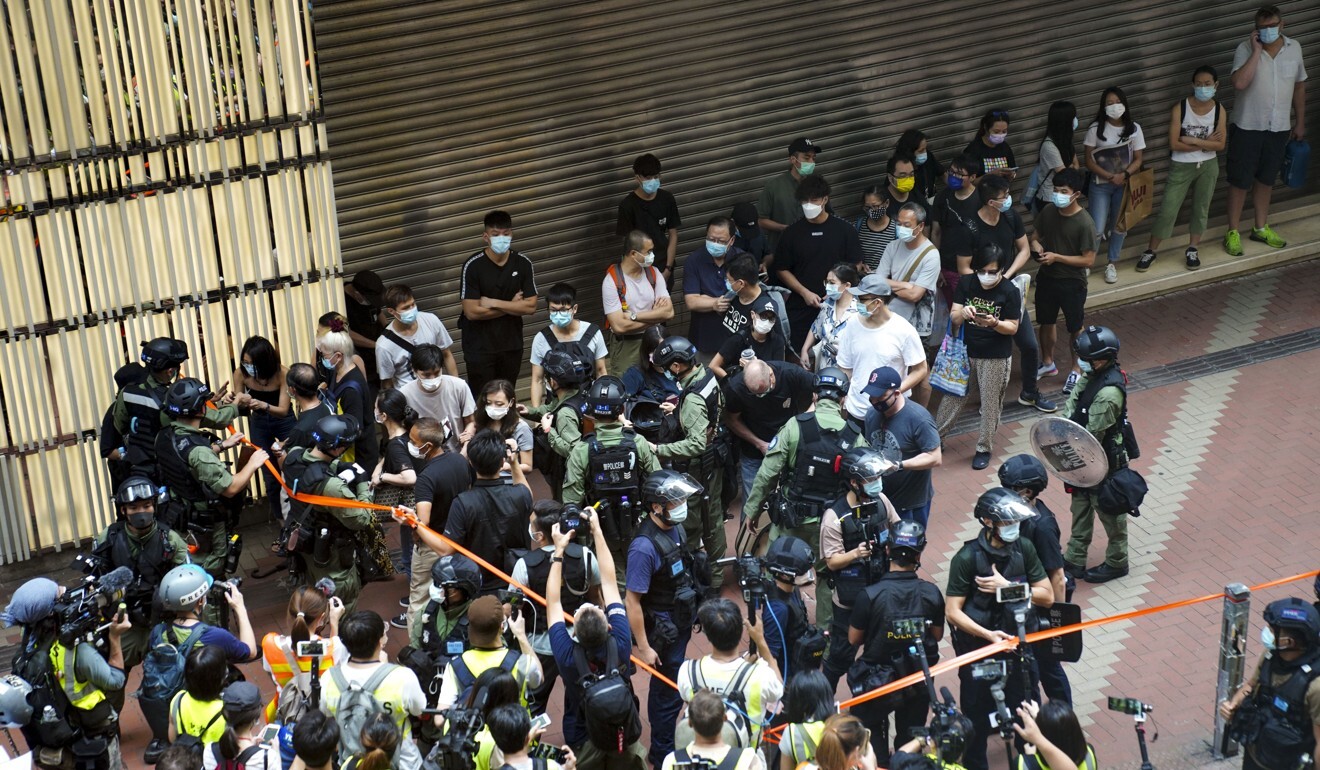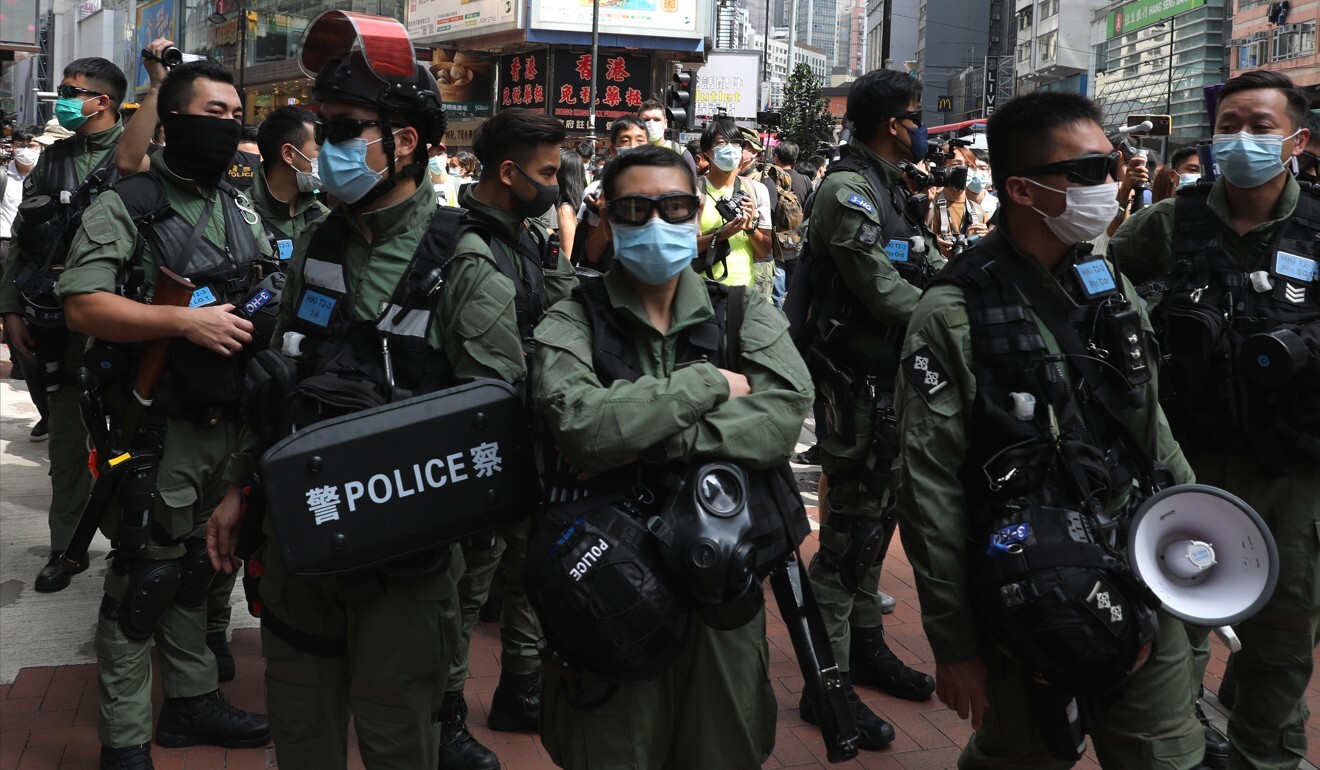
Hong Kong pandemic measures, national security law contribute to calmer atmosphere in city, police chief says
- Since the national security law was introduced, ‘we have seen the social atmosphere change’, says police chief Chris Tang
- Chief goes on to call for the cultivation of a more ‘law-abiding culture’
Commissioner of Police Chris Tang Ping-keung made the remarks during a television interview on Thursday night, as small protests in the city marked the 71st anniversary of the founding of the People’s Republic of China.
“Since we stepped up enforcement and the national security law came into force in June, we have seen the social atmosphere change,” Tang said. “Before, older people would say they support the youth, but now more of them say ‘We do not hope for violence’, or ‘Hong Kong independence is not the way out’.”
He added that police had changed their strategy accordingly and set up roadblocks, which had been “very effective in finding weapons”, although he did not elaborate on the types uncovered.

Previous protests had been difficult to police as thousands of peaceful demonstrators would surround more violent ones, he said.
“Now we are able to focus on handling the more violent people as less of the ‘rational’ protesters come out,” he said.
On National Day last year, tens of thousands of demonstrators spread out across the city, with spontaneous protests sprouting in at least 13 districts as police pushed back with tear gas and water cannons, eventually shooting an 18-year-old with a live round.
This year, the crowd size was estimated to be more like a few hundred, while police doubled their manpower to 6,000 after noticing an increase in the number of online appeals for protesters to attack officers and use violence.
Arrests, resignation, suspension: Hong Kong’s third month under security law
In his interview, Tang said much of the discontent among Hongkongers appeared to stem from anger at the Chinese authorities.

“So I think we should be trying to build up a national consciousness, or at the very least cultivate a law-abiding culture,” he said.
He also emphasised the 12 people being held were wanted by the Hong Kong authorities, adding that if any Hongkongers had been detained on the mainland, Chinese authorities were obliged to inform the city’s police.
“We will also investigate if there are any cross-border crimes involved, such as if anyone in the city had been helping the fugitives to escape, which is a crime,” he said.
Scores arrested in Hong Kong for illegal assembly or other offences
Last week, police changed their guidelines and said they would no longer recognise accreditation from local media groups or journalist associations unless they were registered with the government’s Information Services Department. The move was widely criticised by journalist unions and media scholars, who said it would curb press freedom in the city.

